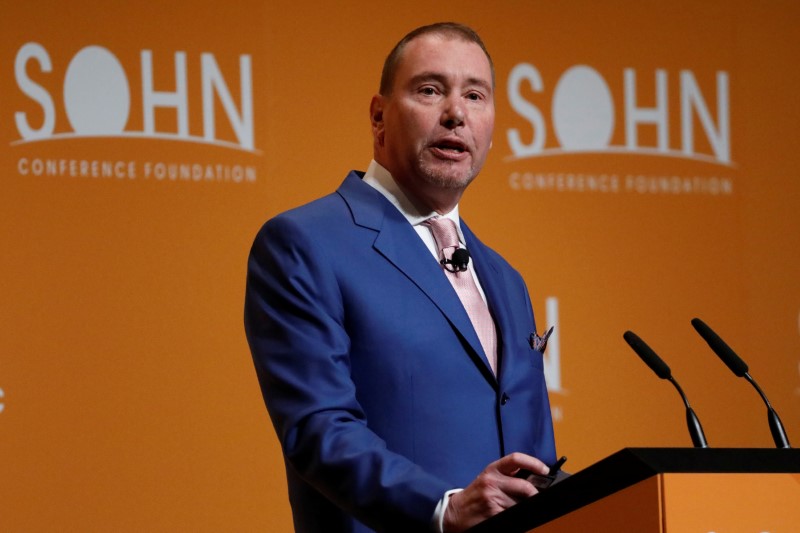By Jennifer Ablan
NEW YORK (Reuters) - Solid payroll figures in June should keep the U.S. Federal Reserve in a "hike-once-a-quarter mindset," said influential bond manager Jeffrey Gundlach, chief executive of DoubleLine Capital, on Friday.
Nonfarm payrolls jumped by 222,000 jobs last month, driven by hefty gains in healthcare, government, restaurants and the professional and business services sectors, the Labor Department said on Friday. It was the second biggest payrolls increase this year and beat economists' expectations for a 179,000 rise.
“It’s a good run-of-the-mill jobs report,” Gundlach said in a telephone interview. Gundlach, known on Wall Street as the "Bond King," said the payrolls report will keep the U.S. central bank in a tightening mode.
“It’s not ‘old school’ sequential tightening when the Fed hiked at every meeting until something breaks,” such as a U.S. recession, Gundlach said. “What we have now is the ‘new old school’ sequential tightening.”
Gundlach, who oversees more than $109 billion in assets under management at Los Angeles-based DoubleLine, said it appears as though the Federal Reserve has been paying attention to record stock prices.
“I think the Fed is emboldened to hike when the stock market is pushing near highs and when there is a sense or whiff of panic in the air, they start to talk cautiously.”
Friday, the Fed said in its semiannual report to Congress that vulnerabilities in the U.S. financial system "remained, on balance, moderate."
Gundlach said the Fed was "getting awfully specific" on asset prices in its semiannual report. "It almost sounds like they are saying, 'I warned you and don't blame us.' I told you we were going to do this (hike rates) and asset prices are going down. If stocks go down 10 percent in October, don’t blame us."
The Fed's report stated that forward equity price-to-earnings ratios rose a bit further and are now at their highest levels since the early 2000s, while a measure of the risk premium embedded in high-yield corporate bond spreads declined a touch from an already low level, implying high asset valuations in the market as well.

"Prices of CRE (Commercial Real Estate) have continued to advance at a rapid clip amid slowing rent growth and rising interest rates, though there are signs of tightening credit conditions in CRE markets," the Fed said. "In derivatives markets, investor compensation for bearing near-term volatility risk has remained low, suggesting a sustained investor risk appetite."